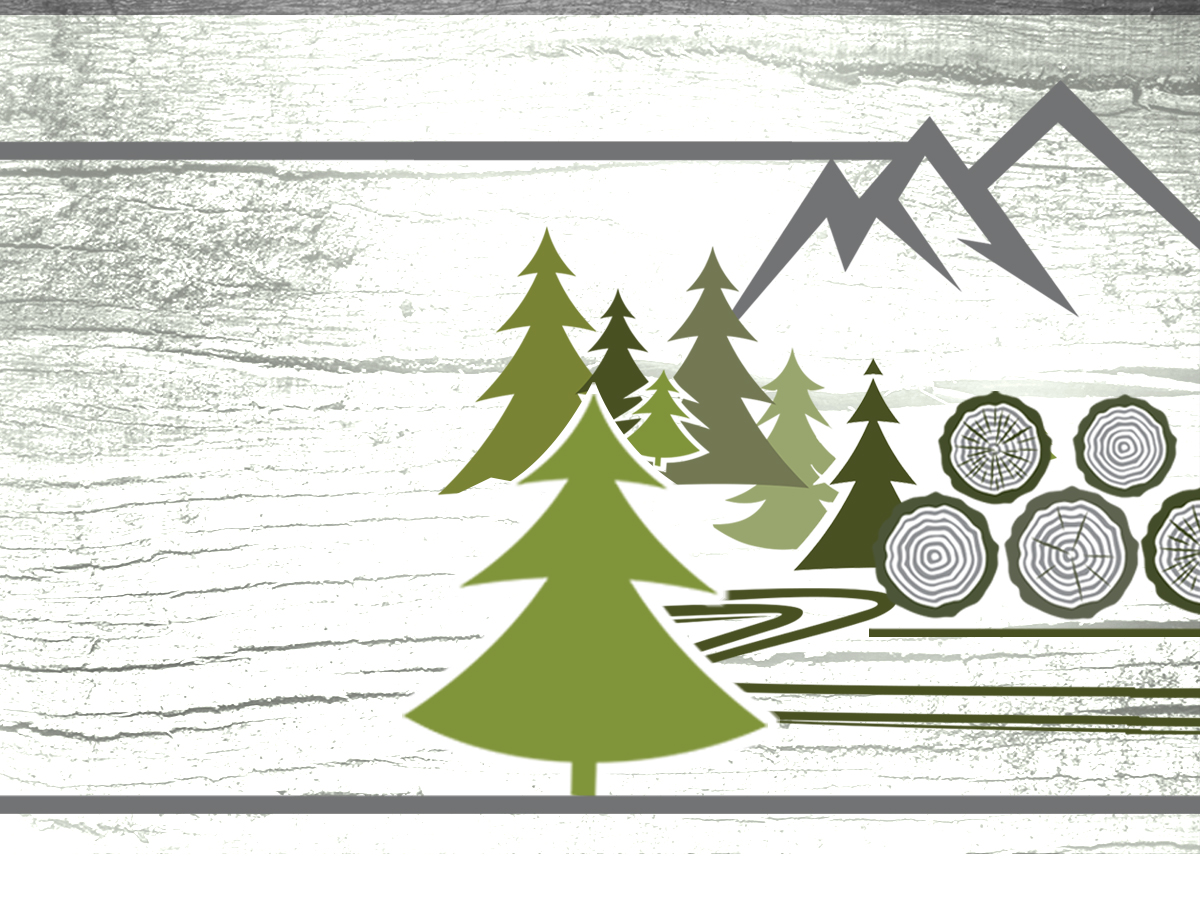
The True Co$t of Timber
CBP artwork by Janice Jones
What is the true cost of a ream of paper or hardwood flooring? Are they worth a life? Economic and environmental destruction? Consumers see a price tag. In some cases, what they don’t see would make them cringe. For some, the cost of timber and timber byproducts like wood chips, furniture, and paper is negligible. While others, like Edwin Chota, pay much more.
Chota was the leader of an indigenous community in the heart of the Peruvian Amazon. He was a vocal environmental activist fighting the destruction of native forests, the lifeblood of indigenous communities around the world as they provide food, medicine, building materials, and economic opportunity for inhabitants. While consumers decided between cash or credit at hardware stores across the globe, Chota paid with his life. Murdered on the ancestral lands he fought to protect, Chota died alongside three other indigenous community leaders as they protested the plunder of their forests by illegal loggers.
“This happens all over the world,” said Homeland Security Investigations Special Agent Jose Goyco. “Illegal loggers come to cut the trees. Local communities try to defend the land that belongs to them, and they're killed.”
U.S. Customs and Border Protection partners with Homeland Security Investigations, as well as a network of other partner government agencies and nongovernmental organizations, to investigate illegal logging practices around the world. As a collective front, this network of public and private entities works tirelessly to disrupt and dismantle transnational criminal organizations that threaten the welfare of the American people and economy, as well as communities around the world.
“CBP is responsible for protecting and securing the economy and safety of the homeland, and this responsibility includes protecting the environment by combating entities that support illegal logging and timber trafficking worldwide,” said Jonathan Nogueira, a CBP International Trade Analyst who conducts research on illegal logging around the world to identify high-risk imports.
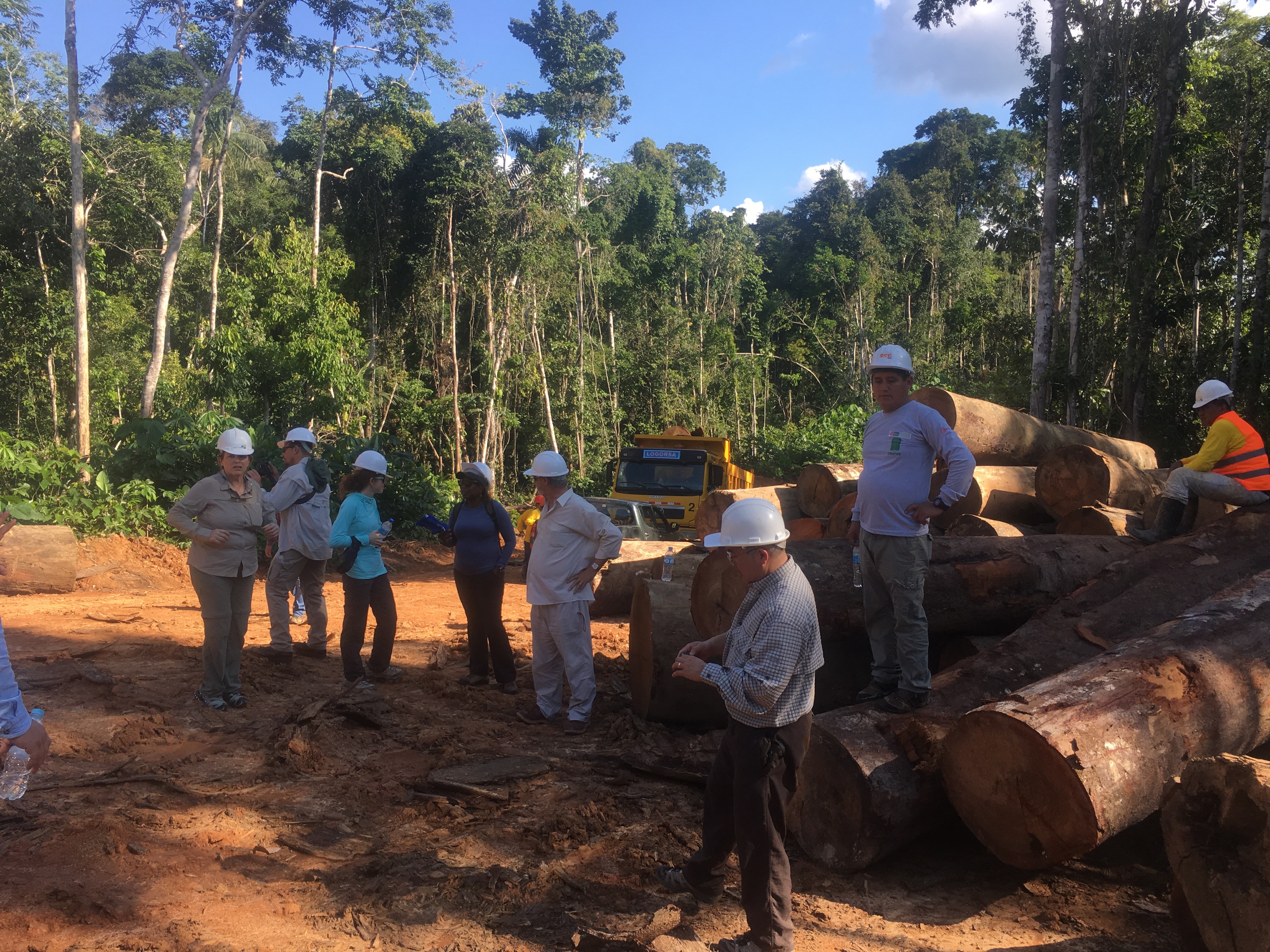
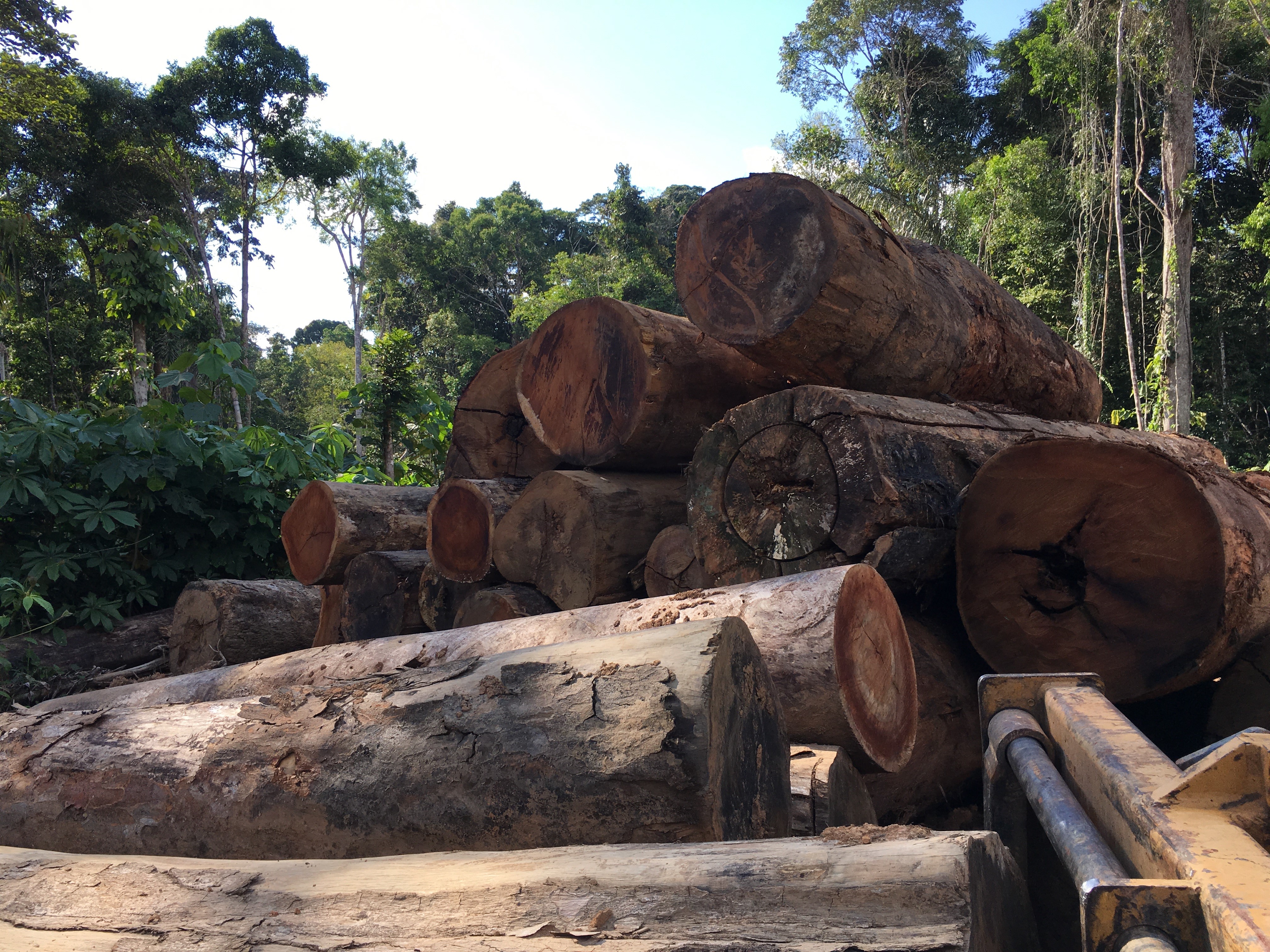
In addition to dedicated trade analysts like Nogueira, CBP officers and agriculture specialists inspect and detain timber shipments across all 328 ports of entry to ensure compliance with the Convention on International Trade in Endangered Species of Wild Fauna and Flora and the Lacey Act, which prohibits illegal trafficking in wildlife and plants, as well as an array of applicable customs violations, such as importations contrary to law or false documentation.
While “trafficking plants” may sound harmless, illegal logging is not a victimless crime. The illegal timber trade is soaked with blood, financing violent conflict, and providing a cover for other crimes, such as drug trafficking, money laundering, illegal mining, wildlife trafficking, and forced labor. “Ignoring the effects of illegal logging and timber trafficking could result in life-threatening consequences, causing great misfortune to economies, wildlife, and humans,” said Nogueira. Yet, it flies quietly under the radar in many countries due to a lack of regulation or high-level corruption, despite how common it is in many parts of the world.
According to the Global Financial Integrity Report, Transnational Crime and the Developing World, between 10 and 30% of globally traded timber is illegal. For tropical timber, that rate is as high as 90%. The United States imports timber from countries around the world, with the majority arriving from Sweden, Canada, and China. The Environmental Investigation Agency, a D.C. based nonprofit recognized for its expertise and action on environmental issues, reports that China is the world’s largest importer of illegal timber, serving as a processing center for illegal shipments from Africa, Asia, and elsewhere before arriving at a final destination.
Because wood is often processed outside of its country of origin, it can be difficult to trace a shipment back to the original stump, especially if exporters intentionally obscure that information.
“We have lab sampling capabilities when it comes to wood identification,” explained CBP Branch Chief Judith Webster, who leads a team of international trade analysts investigating illegal logging. “Sometimes you can tell from the testing where the wood has been harvested. Where the wood originated is very important,” she explained, “a lot of companies involved in shipping timber will falsify this information.”
There are many reasons why an importer would attempt to falsify the country of origin and other import data. One reason is to bypass export bans set by international governments worldwide to prevent environmental degradation. Another is to bypass U.S. customs laws. “Some of these companies misclassify import codes. Some of them may be doing it intentionally to avoid paying the proper duty upon entry,” said Nogueira.
In addition to lab sampling, CBP relies on advance trade data, open-source reporting, intelligence information and import declarations in the Automated Commercial Environment, an electronic processing system that streamlines data collection, to identify fraudulent or suspect import documents.
CBP verifies documentation, targeting high-risk shipments for further investigation before they make it to the U.S. “Through data, we put together a picture of illegality, and then we put together an enforcement strategy,” said Webster.
When timber shipments do eventually make their way to the border, CBP officers are the first to intercept them. “CBP provides the manpower to be able to detain, sample, and ask for documentation from importers” explained a Homeland Security Investigations official. They also ensure the shipment is free of exotic plant pests.
The emergence of the coronavirus pandemic in 2020 makes this work even more critical.
The Impacts of COVID-19
Mary Utermohlen and Ceci Neumeister of C4ADS, a non-governmental organization in the fight against illegal logging, explained that governments in many countries are struggling to oversee effective regulatory measures against illegal logging due to restraints and safety concerns caused by COVID-19. The result is an increase in illegal activity. Communities that lost their primary income streams due to the pandemic are turning to illegal logging to survive in regions with limited economic opportunities.
As the most profitable natural resource crime on the planet and the third most profitable transnational crime behind counterfeiting and drug trafficking, illegal logging is an attractive financial prospect for criminals and those left financially destitute because of the pandemic or other geo-political factors. Generating between $52 and $157 billion dollars annually, the illegal timber industry attracts all sorts of criminal organizations willing to destroy any obstacle standing in the way of a profit, even at the expense of the global good.
In the era of COVID-19, the issue of deforestation and other environmental impacts of illegal logging take on new significance. In an article from the journal Nature, scientists warn that the loss of biodiversity associated with the destruction of forests could lead to an increase of infectious disease. As human settlements replace deforested areas, contact between people and wild animals increases, and so does the risk of disease.
Environmental Impacts
Deforestation also represents a significant threat to the global climate crisis. Unfortunately, illegal logging plays an important role, since criminal organizations often cut trees indiscriminately, completely destroying the area of forest that they harvest.
“We’re protecting the lungs of the world,” explained Nogueira.
Susanne Breitkopf works for the Environmental Investigation Agency as the deputy director of the organization’s forest campaign. “In the past ten years, the world has lost an area approximately the size of Virginia every year, and that’s a conservative estimate,” she said.
Because of the overlap in illegal logging and mining activities, water contamination is also a serious environmental consequence. Criminal networks often use land cleared by illegal logging operations to establish illegal mining activities where they use mercury to search for raw minerals. Mercury pollutes nearby water sources, poisoning wildlife and local drinking water.
According to Neumeister, this type of environmental degradation can lead to security issues by devastating local economies, generating regional, national, and international ripple effects, even in the U.S. But CBP’s efforts can send ripple effects too, and that’s exactly what happened in 2017.
Trade Agreements and Economic Impacts
As one of the largest timber importers in the world, the U.S. represents a lucrative market for illegal suppliers. Preventing illegal shipments from entering the U.S. cuts off a major revenue stream for transnational criminal organizations, sending shockwaves throughout the illegal market by blocking access to American buyers.
In 2017, CBP and Homeland Security Investigations coordinated with the Peruvian government to do just that. In response to an unprecedented shipment of Peruvian timber in 2015, where 96% of the timber was determined illegal, CBP leveraged the United States – Peru Trade Promotion Agreement to verify the legality of imports from two Peruvian companies, Inversiones La Oroza and Inversiones WCA E.I.R.L. When the companies failed to provide evidence of legality, CBP worked with the U.S. Trade Representative to ban their imports in 2017 and 2019 respectively. Under CBP’s counsel, the U.S. Trade Representative renewed the ban against La Oroza in 2020. “There are targeting rules in our system to ensure that no product from either of these companies enter the commerce of the United States,” explained Webster.
These enforcement actions, combined with the interception and exclusion of the 2015 shipment from the U.S. commerce, resulted in the closure of illegal timber mills and processing centers across Peru.
CBP hopes that the new U.S.-Mexico-Canada-Agreement will open the door for even more international collaboration and success in the fight against illegal logging. The new United States-Mexico-Canada Agreement, which replaced the North American Free Trade Agreement in 2020, strengthens CBP’s ability to investigate and prosecute environmental crimes like illegal logging. “This is the first time there has been an environmental chapter of this nature in a trade agreement. It’s really groundbreaking,” explained Webster.
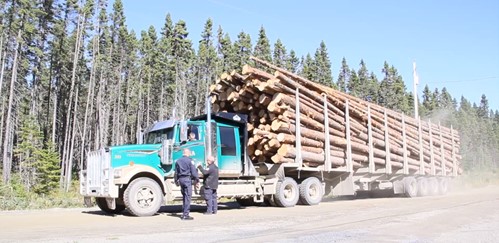
logging truck headed for the Canadian
border. Photo by Sean D. Smith
As a part of the agreement, CBP sits on an environmental committee with 11 partner government agencies in order to make key policy recommendations to the U.S. Trade Representative on how to best enforce environmental provisions. "CBP hopes to see more seizures, more penalties, more open cases, and enhanced focus on the issue as a result of the agreement," said Webster. But relying on seizures alone to resolve this problem is unrealistic she explained, “It's also about holding these people responsible through prosecution, either civil or criminal."
Despite the agency’s efforts, illegal timber does still find its way into the U.S. supply chain due to the opacity of the industry in many parts of the world. Criminal actors are always looking for new ways to bypass CBP enforcement efforts to reach U.S. buyers. This directly undercuts American businesses and workers.
“Producers in the United States who are obeying the laws and practicing responsible forestry simply cannot compete with the cheap illegal stuff that is coming in from other countries, where the rules and laws are being completely ignored. That puts producers here at home at a significant disadvantage,” Breitkopf said.
Harvested sustainably, natural resources like timber could provide a significant revenue stream for developing countries, supporting infrastructure in the forms of roads, schools, and healthcare. Instead, in many countries where much of the world’s tropical timber originates, very few people reap any benefits at all. Those that do often use the profits to finance additional forms of crime and violence.
The Lacey Act
When importers fail to provide detailed information about the origins of their products to consumers, they make it difficult for Americans to make an informed decision that could indirectly finance and support violent conflicts around the world, including civil war and the exploitation of vulnerable populations. Greater transparency in supply chains could prevent consumers from becoming “unwitting accomplices” to these crimes, Breitkopf explained.
By prosecuting criminals involved in illegal timber networks, CBP can mitigate the environmental, humanitarian, and economic consequences of this crime, both at home and abroad, to ensure greater transparency moving forward. “CBP is playing a huge and very important role in preventing illegal timber from coming into the United States, which sets a global standard for consequences for bad actors,” Neumeister said.
The Lacey Act is one of the authorities that grants CBP the legal authority to enforce those consequences.
“The Lacey Act Amendments of 2008 require all importers of regulated plant material to file a declaration upon importation,” said Cynthia Stahl, a Lacey Act Compliance Specialist with U.S. Department of Agriculture Animal and Plant Health Inspection Services. “That declaration identifies the species of the plant, the quantity of plant material, the value of the commodity, and the country from which the plant was harvested.”
CBP leverages the Lacey Act, in addition to its broader customs authorities, to disrupt and detain illegal timber imports and to develop and prosecute criminal cases in order to stop illegal shipments from entering the U.S.
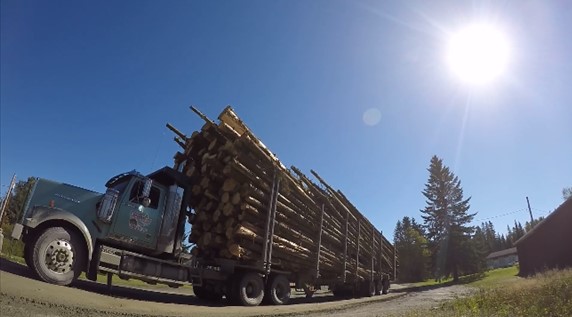
after inspection by CBP officers. Photo by Sean D.
Smith
In 2016, CBP played a critical role in the first felony conviction related to the import or use of illegal timber and the largest criminal fine ever under the Lacey Act. The government convicted Lumber Liquidators Inc. for importing illegally harvested timber that originated in eastern Russia in a region that was home to the endangered Siberian tiger and Amur leopard, explained Elliott Harbin, Homeland Security Investigation’s national program manager for the Environmental Crimes Program.
Lumber Liquidators faced over $13 million in criminal fines including community service payments to the Rhinoceros and Tiger Conservation Fund and was required to develop an environmental compliance plan.
What Can You Do?
CBP will continue to leverage its unique border authorities to prosecute and dismantle transnational criminal organizations who pose a threat to the environment and to the economy. As timber shipments make their way to the U.S. from around the world, CBP officers will be the first to ensure they comply with the laws that protect American businesses and American workers. However, as the agency implements new and innovative ways to stop illegal timber from entering the U.S. market, it also relies on importers and consumers to take action.
Consumers can make a difference by asking questions regarding the origins of timber products before they make a purchase.
“The public holds financial power that can change how these supply chains work and are sourced,” Neumeister explained.
Importers also play an essential role as they have the oversight and means to increase supply chain transparency in order to expose the illegal networks and origins of imports.
“Crimes thrive in the dark,” Breitkopf said. “We need to establish transparent and traceable timber supply chains so that illegal origins can no longer be hidden. The technological means to do that exist. There is no excuse anymore that you cannot follow a log that is coming out of a forest to see where it goes.”
Importers can also use tools like the Open Timber Portal by the World Resources Institute to identify countries and suppliers who are transparent in their harvesting methods.
CBP is responsible for enforcing the laws of the United States for the American people, but ending illegal logging and its devastating consequences must be a collective effort. Communities around the world depend on the agency’s unified action.


